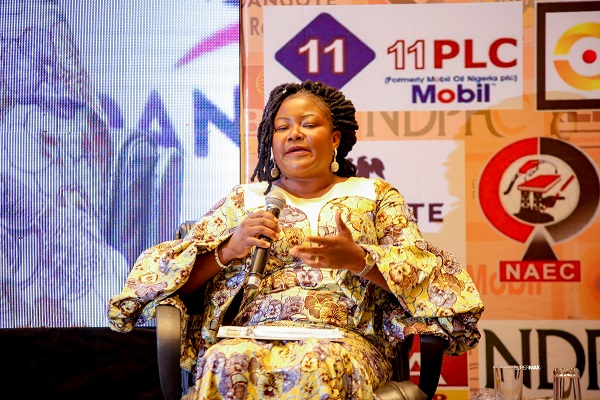
Dr. Joy Ogaji, Executive Secretary of APGC
Utility firms, also known as Power Distribution Companies ( DisCos) are indebted to the Power Generation Companies( GenCos) to the tune of N1trillion, the Executive Secretary, Association of Power Generation Companies (APGC), Dr Joy Ogaji has said..
She said inability of the firms to pay up their debts, has resulted in the low output of the electricity generation companies.
Speaking during a panel session at the Association of Energy Correspondents of Nigeria annual conference themed, “Energy Transition: Shaping the Future of Nigeria’s Energy Industry, An Appraisal of PIA, Evolving Benefits and Challenges. Ogaji said the issue has made it for the companies to procure materials necessary for their operation and also meet the needs of the citizens.
While speaking on the dilemma in the ‘Power Sector : Issues, Challenges, Opportunities And Strategic Key Solutions’, she argued that the GenCos were owed N2trillion, not N500billion as reported in the media.
“GenCos are not owed N500bn as accepted by Nigerian Bulk Electricity Trading Company (NBET). We are owed N2 trillion, while we owe suppliers N1trn,” she said.
Explaining further, Ogaji said that GenCos have not been able to make power available due to the huge debts being owed them by NBET.
NBET is the manager and administrator of the electricity pool in the Nigerian Electricity Supply Industry, NESI. It collects tariffs on behalf of the market – DisCos, DisCos and the TCN.
Ogaji further explained that although the GenCos currently had enough power generating capacity, the market was not available as the DisCos had not been able to take all power generated.
“Nigerians don’t want power because there is no demand for it. For instance, Egbin, which has over 1000 capacity, has not been able to generate 800MW because there’s no demand,” she said.
She added that power generation depended on market demand.
“Our generation is driven by demand, and the demand is not there. Nigerians are not demanding for power, and we are in huge debt.”
Comments
Post a Comment